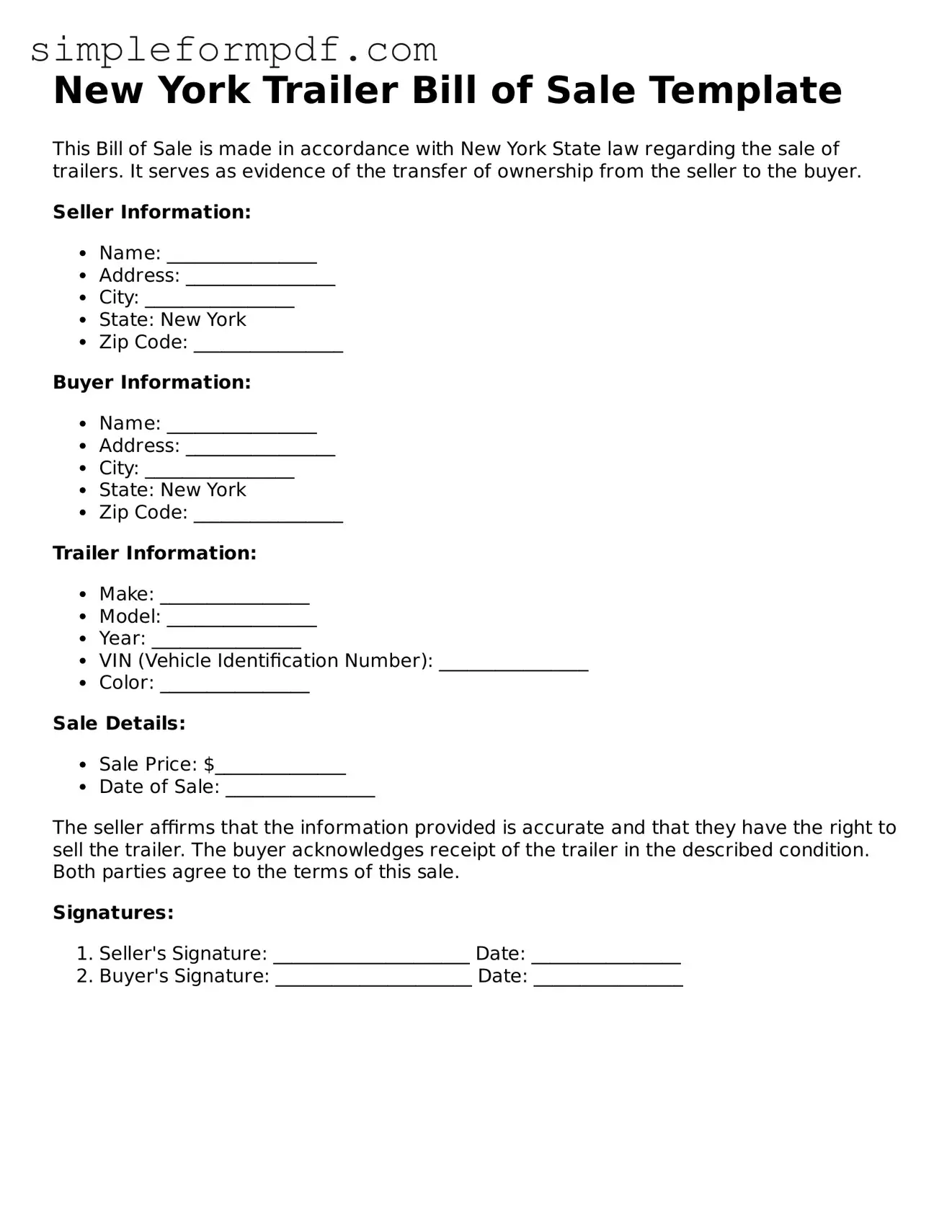Free Trailer Bill of Sale Form for the State of New York
The New York Trailer Bill of Sale form is a legal document that records the sale of a trailer from one party to another. This form serves as proof of ownership transfer and includes essential details about the trailer and the parties involved. To ensure a smooth transaction, it's important to fill out this form accurately.
Ready to complete your trailer sale? Click the button below to fill out the form.
Launch Editor

Free Trailer Bill of Sale Form for the State of New York
Launch Editor
Need instant form completion?
Finish Trailer Bill of Sale online in just a few minutes.
Launch Editor
or
Download PDF
